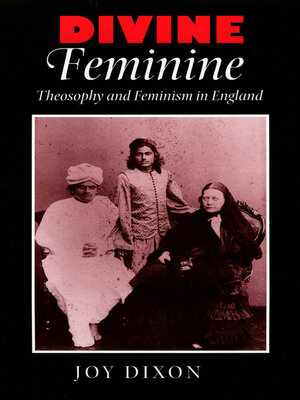Divine Feminine
ebook ∣ Theosophy and Feminism in England · The Johns Hopkins University Studies in Historical and Political Science
By Joy Dixon

Sign up to save your library
With an OverDrive account, you can save your favorite libraries for at-a-glance information about availability. Find out more about OverDrive accounts.
Find this title in Libby, the library reading app by OverDrive.



Search for a digital library with this title
Title found at these libraries:
| Library Name | Distance |
|---|---|
| Loading... |
Honorable Mention for the Wallace K. Ferguson Prize from the Canadian Historical AssociationChosen by Choice Magazine as an Outstanding Academic Title of 2003
In 1891, newspapers all over the world carried reports of the death of H. P. Blavatsky, the mysterious Russian woman who was the spiritual founder of the Theosophical Society. With the help of the equally mysterious Mahatmas who were her teachers, Blavatsky claimed to have brought the "ancient wisdom of the East" to the rescue of a materialistic West. In England, Blavatsky's earliest followers were mostly men, but a generation later the Theosophical Society was dominated by women, and theosophy had become a crucial part of feminist political culture.
Divine Feminine is the first full-length study of the relationship between alternative or esoteric spirituality and the feminist movement in England. Historian Joy Dixon examines the Theosophical Society's claims that women and the East were the repositories of spiritual forces which English men had forfeited in their scramble for material and imperial power. Theosophists produced arguments that became key tools in many feminist campaigns. Many women of the Theosophical Society became suffragists to promote the spiritualizing of politics, attempting to create a political role for women as a way to "sacralize the public sphere." Dixon also shows that theosophy provides much of the framework and the vocabulary for today's New Age movement. Many of the assumptions about class, race, and gender which marked the emergence of esoteric religions at the end of the nineteenth century continue to shape alternative spiritualities today.







